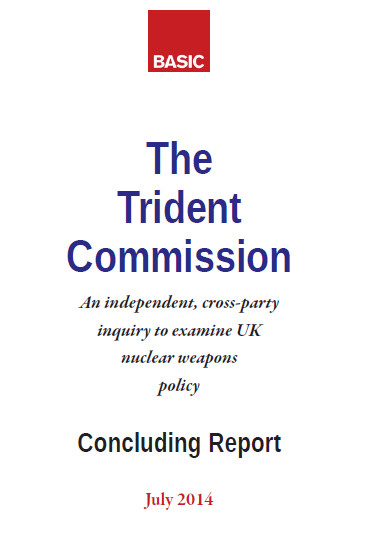One of its important conclusions reads
"If the United States were to withdraw their cooperation completely, the UK nuclear capability would probably have a life expectancy measured in months rather than years.....seems unlikely that the UK would contemplate or explicitly threaten their use in a crisis without the support of the United States. This opens up the question of what the purpose of an independent deterrent is. Professor Colin Gray stated in evidence to the Defence Committee in 2006: 'I am not the least troubled by the American connection, but for anyone who wishes to question the true independence* of the British nuclear deterrent I would concede that it is… a hostage to American goodwill… the dependency is critical and will continue.' We would tend to agree with this sentiment."
* In 1977 the 'Duff-Mason report' to the then cabinet defined independence as 1 year i.e. sufficient time for a situation to develope and Government to respond without any other party being able to prevent it.
The Commission came to this conclusion in recognition of the fact that the UK is heavily dependent on the US for missile technical support including maintenance and supply of missiles via a common pool located in the US and use of the Florida based missile test firing range. Whilst it would be difficult for the US to frustrate a UK submarine already deployed on patrol from firing, it could frustrate the UK's ability to use further missiles for subsequent patrols should it so wish for political reasons.
This inter-dependency is further re-inforced by the fact that the UK is designing for Trident successor submarines a missile weapons module which will be common to USN and RN submarines.
A table showing the UK's dependency on the US attached
to a House of Commons Select Committee report (7 March 2006) indicates
the very high level of dependency. In addition to which, since the
report was written, UK missiloes are on loan from a joint pool in Kings
Bay USA.
So...if we are dependent on the US both politically and technically, why don't we formalise our interdependence for protection against the remote likelihood of a nuclear threat to the UK? The US is a member of NATO and therefore legally committed to come to our aid if our national safety is threatened. The quid pro quo would be that we could divert the money currently budgetted to replace Trident to be used to rebuild our conventional forces to a level at which, once more, we provide a significant contribution to NATO's conventional forces in Europe. The BASIC report states " There is a growing frustration within the United States with its European allies and their shrinking military capacity to operate meaningfully alongside them.". Senior US Military Officer's concern over the UK's diminishing conventional forces have been widely promulgated in the media in the last 12 months.
Three authors of Letters to The Independent (26 January 2016) have expressed very similar views and concerns.
Back to Home Page Questions & Answers Trident Nuclear Weapon System Can UK afford Trident? Further reading |
